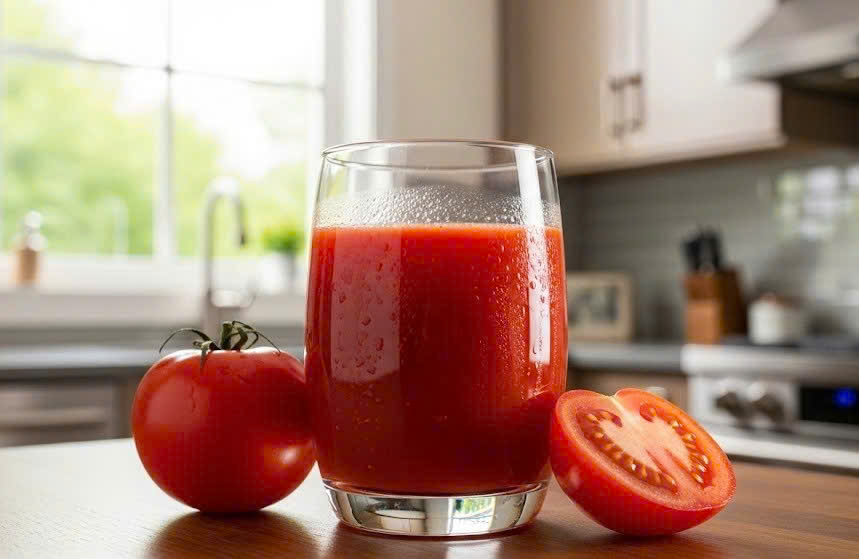Answer:
Tomatoes contain three nutrients that support stable blood pressure: potassium, lycopene, and vitamin C. Potassium helps balance electrolytes, enabling the kidneys to eliminate excess sodium from the body. This reduces pressure on artery walls, contributing to maintaining stable blood pressure. A 240 ml glass of fresh tomato juice can provide a significant amount of the body's daily potassium needs.
Lycopene, a characteristic antioxidant in tomatoes, helps prevent atherosclerosis, protects the lining of blood vessels, and improves arterial elasticity. Vitamin C in tomatoes also neutralizes free radicals, protects blood vessel cells, and maintains a healthy circulatory system, thereby regulating blood pressure.
You can drink one to two glasses of fresh tomato juice daily to supplement potassium, lycopene, and vitamin C, which can help lower blood pressure in people with mild hypertension. However, because tomatoes are slightly acidic, avoid drinking tomato juice on an empty stomach, as it may cause intestinal discomfort or acid reflux. Individuals with kidney disease or high potassium levels should consult a doctor before consuming tomato juice regularly, as the potassium content can affect kidney function.
For optimal results, choose ripe, red tomatoes, juice them fresh, and consume the juice immediately after preparation. Limit consumption of canned tomato juice, as it may contain added salt, sugar, and preservatives. Drinking tomato juice in the morning after a meal or after exercise is an ideal time, promoting better nutrient absorption and replenishing electrolytes.
 |
Drinking one to two glasses of fresh tomato juice daily can help lower blood pressure. Photo: Trong Nghia |
Drinking one to two glasses of fresh tomato juice daily can help lower blood pressure. Photo: Trong Nghia
In addition to juice, consuming fresh tomatoes in salads or cooked with a little olive oil also helps with lycopene absorption, maximizing benefits for cardiovascular health and blood pressure. Supplementing with natural extracts like GDL-5 from South American sugarcane, containing natural policosanol, contributes to regulating blood lipids and helps control high blood pressure. Maintaining a healthy weight, exercising regularly, and monitoring blood pressure can prevent complications. Individuals with hypertension should have regular check-ups so their doctor can adjust medication and dietary recommendations to ensure optimal blood pressure control.
MSc. Dr. Nguyen Anh Duy Tung
Nutrihome Nutrition Center
| Readers can submit nutrition-related questions here for doctors to answer. |












